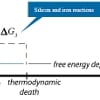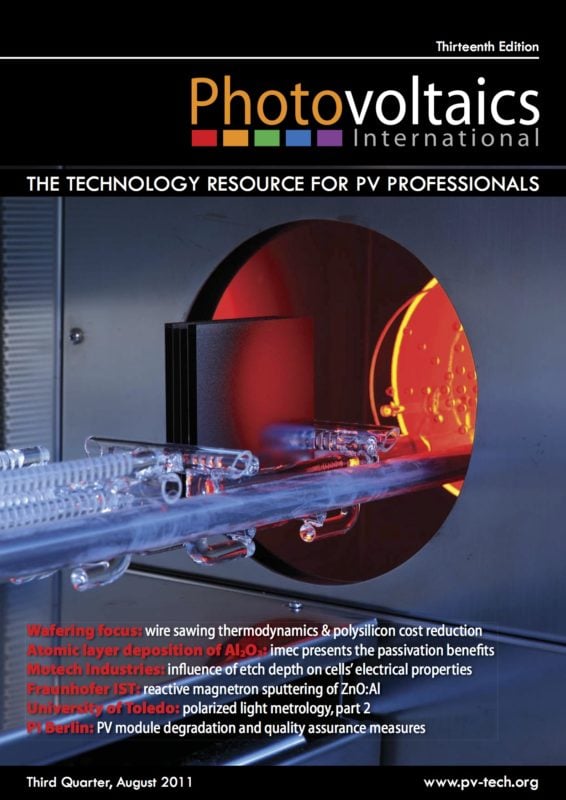By Erik Brown, Argenta Consulting, Coopersburg
The last several years have seen a significant number of publications on wire saw data in regard to process optimization theory applied to solar wafering. The methods vary, but fundamentals concern the mechanical dynamics of the wire sawing process, where measurements of the wire forces in the silicon slot using free abrasive are studied; however, these data are not yet fully correlated to a complete thermodynamic analysis of the problem. The objectives of the empirical development of the process theory are also widely varied, but there is industry agreement that it is being faced with the fundamental limits of cutting rates in processes that use free abrasive slurries and a single wire. The limit arises from intrinsic thermodynamic limits of the delivery of work energy to the silicon slot. Similarly, these same principles prevent us from increasing the wafer load to overcome the limitation as work energy transfer rates are countered by higher entropic losses that occur as power and wafer load are increased. The effect results in the problem that the wafer load may not be increased without proportionately reducing table speed. The fundamental nature of these limits suggests that they involve theoretically calculable energy quantities of thermodynamic limiting functions, which restrict the ‘useful’ work that we can extract from the system, where the work energy of interest is the abrasion of the silicon in forming the wafers. The present work reviews the theoretical issues of determining process efficiency optimums that could be used to achieve throughput gains.



